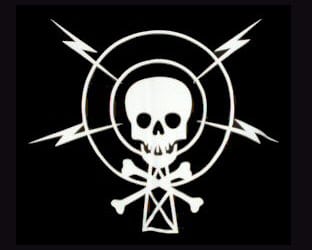As promised, US Bankruptcy Judge Burton Lifland has signed the order confirming the Chapter 11 reorganization plan for Citadel Broadcasting. The judge was not impressed by the efforts of dissident shareholder Aurelius Capital Partners to show that the plan undervalued the company and overpaid the creditors, leaving shareholders with nothing.
“There is no basis to replace management’s informed judgments with those of Mr. Ensley,” Lifland wrote in refusing to consider testimony by Wall Street analyst Chris Ensley that Citadel’s radio business would rebound more rapidly than projected by management. Rather, he accepted the most recently revised projections by CEO Farid Suleman and CFO Randy Taylor as being “based on supportable assumptions about growth and performance.”
Suleman noted that the original projections, prepared in December 2009 and January 2010, were that 2010 EBITDA would total $210. After observing actual results for the first two months of 2010, the estimate of segment operating income for Q1 was increased by $10 and the actual result came in at $10.4 million above the original estimate.
“The Revised Projections estimate that Citadel’s 2010 EBITDA will be $232.4 million (in comparison with the prior $210 million) and that the revised 2010 revenues will continue to grow 2% annually each year over the next four years from 2011 through 2014. In determining this growth rate, I considered, among other things, the following: (i) the approximate -1.8% annual (declining) growth rate for the radio broadcast industry between 2003 and 2008 (and in particular the most recent trends for 2007 (which was down 2%) and 2008 (which was down 9%) even before the recent 2009 collapse (which was down 18)); (ii) the recent economic volatility in the U.S. and global marketplace; (iii) the changing radio industry landscape — which includes increased competition from the internet, satellite radio and cable television; and (iv) my knowledge and experience regarding more than two decades worth of changes and trends in the radio industry,” stated Suleman in his written statement to the court.
“The Revised Projections reflect Citadel’s best estimate, at this time, regarding its future performance. As with all projections, however, particularly in an uncertain economic environment and in light of developing new technologies, actual results may differ,” the CEO added.
The management projection is that Citadel’s revenues will total $737.2 million in 2010, up from $723.6 million in 2009. By 2014 the company’s revenues are projected to grow to $801.2 million, which is still below the $836.1 million of 2008.
Total segment operating income is projected at $251.6 million for 2010, compared to $218.5 million in 2009. The 2014 projection is $269.5, still down from $289.9 in 2008.
Just as he accepted the management projection of future growth, Judge Lifland also accepted as “credible” the testimony of Citadel’s financial advisor and investment banker, Louis Zachary Jr. of Lazard Frerer, that the current value of Citadel is $2.04 billion. He ruled that Aurelius had failed to establish that its proffered expert, Professor Gregg Jarrell of the University of Rochester’s William E. Simon Graduate School of Business, “was qualified to opine on the valuation of a radio broadcasting, as opposed to general valuation principles.” The judge was also not persuaded by testimony of Virtus Capital President Steve Gidumal about the value of Citadel’s assets.
“Accordingly, the Court finds that the enterprise value of the Debtors demonstrates that equity is out of the money and the Plan satisfies the absolute priority rule,” Judge Lifland wrote in his ruling.
There is no indication yet when Citadel will actually exit Chapter 11 bankruptcy court from creditors. Unless there is an appeal to a higher court is filed by Aurelius, it and other shareholders will be left with stock having absolutely no value. Despite that, Citadel shares have still been trading daily for 2-3 cents each.
RBR-TVBR observation: The really unfortunate shareholders in this have been the Walt Disney Company shareholders who, having invested in one of the safest and most widely held stocks in the world, were unexpectedly handed shares of Citadel Broadcasting – a company many had probably never heard of – when ABC Radio was spun off from Disney and merged with Citadel in 2007. Those new shares have gone from over $6 per share to zero in value for any of the Disney shareholders who just stashed them away and never sold.




